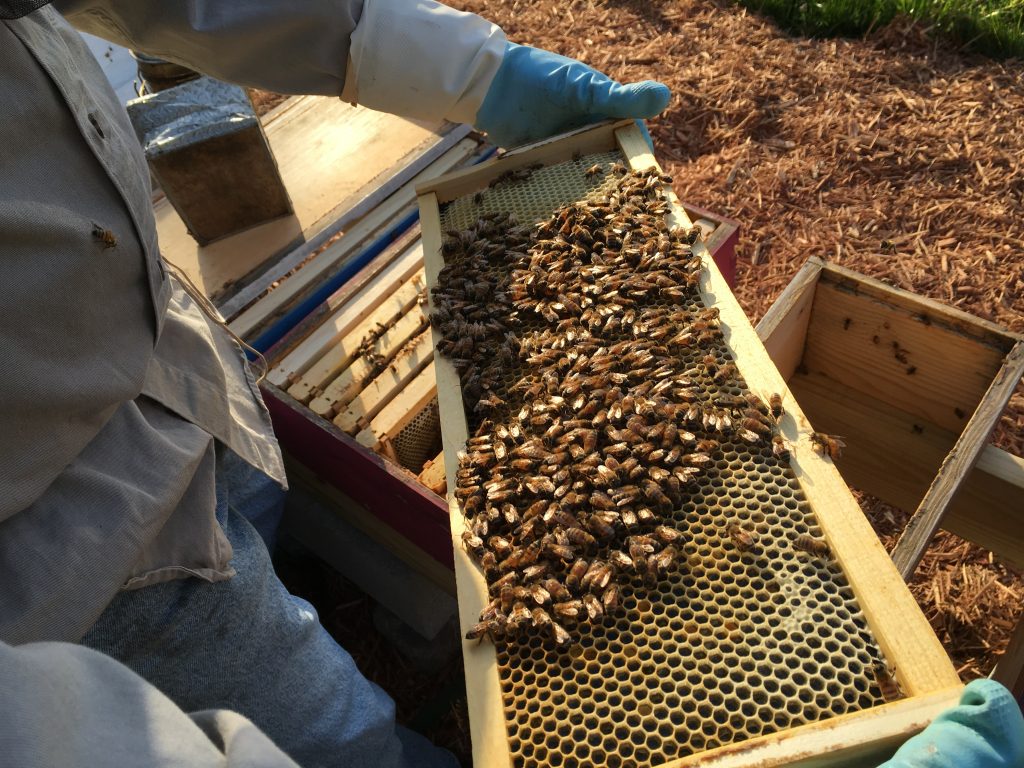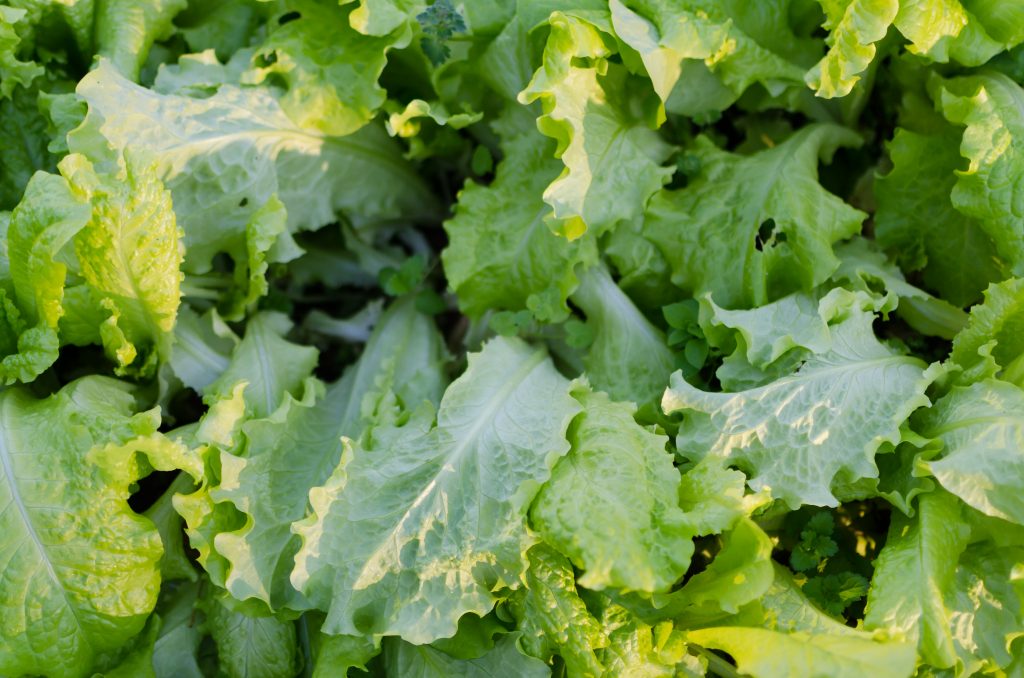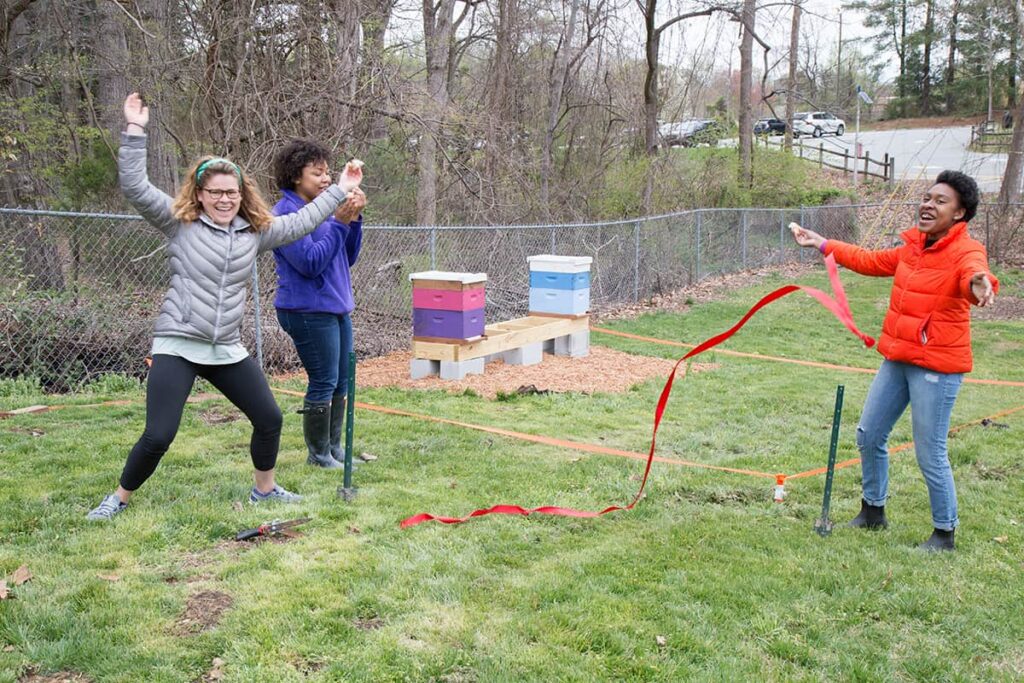Sowing Seeds of Sustainability at the Campus Garden

by Office of Sustainability News Intern, Suzanne Mullins
Have you visited the Campus Garden? Located on Polo Road, the Campus Garden draws student, faculty, and staff volunteers to aid with crop cultivation and maintenance. Managing the garden are three Wake Forest students and Office of Sustainability interns—senior Akua Maat, junior Megan Blackstock, and junior Nick Judd.
But, what responsibilities come with being a Campus Garden intern? How does the Campus Garden aid in educating volunteers? And lastly, why are these three individuals so invested in a sustainable future? I sat down with each of them to find out.
Suzanne Mullins, OoS News Intern: How has the garden evolved during your time as an intern?
Akua Maat: As a Campus Garden intern for the past two years, I’ve spent a lot of time getting comfortable with the physical garden space and certain agricultural practices—there’s definitely a learning curve. The garden is constantly changing—we’ve added new growing spaces, expanded plots, incorporated honeybees into the ecosystem, and even conducted some planting and growing experiments with heirloom seeds.
Suzanne Mullins: What do volunteers learn when they visit the garden?
Akua Maat: As the garden changes, volunteers are invited to witness and enjoy its transformation. As garden interns, our personal goal is to make local, ethical, and sustainably-sourced food the norm.
Nick Judd: We want to educate volunteers about how sustainable produce is grown and distributed so they are empowered to incorporate more sustainable purchasing practices into their lives.
Megan Blackstock: We inform Campus Garden volunteers about the issues surrounding the differences between industrial and small-scale farming, and how they can influence these practices with their own habits. Through firsthand exposure to organic, small-scale farming and articulated learning outcomes on normalizing sustainable agriculture, we hope to enlighten volunteers on their degree of options in choosing environmentally and socially conscientious foods.
Suzanne Mullins: What is growing in the garden right now?
Megan Blackstock: Right now, our garden is mainly directed at producing heirloom variety crops; these are at risk of going extinct due to our world’s heavy dependence on a small number of hybrid seeds for farming. In mid-to-late spring, we mainly focus on summer crops such as eggplant, tomatoes, squash, watermelon, and strawberries. In the fall, we plant mostly leafy plants that can withstand the unpredictable weather patterns of the fall and early winter months.
Nick Judd: During this particular semester, we have made efforts to maximize space and expand growing potential by extending a plot, building a second strawberry box—out of recycled wood, I might add—and we are even planning to implement a trellised bean patch.

Suzanne Mullins: The Campus Garden gives first-hand experience with sustainable practices. How do Wake Forest students, particularly those who volunteer at the garden, perceive their relationship to sustainability?
Akua Maat: Watching the garden grow these past few years, and learning about food alongside volunteers, has offered us a rare opportunity to connect with food origins in novel ways. When you regularly interact with something, you start to understand it as valid, worthy, and important; our hope for volunteers is that they experience this understanding. We invite them to ask questions about seeds, crop growth, and the weather. On the other hand, we share our knowledge about soil nutrients, food seasonality, crop rotation, and organic growing. We also like to extend these conversations to a larger audience through events. For example, we have held Spring Equinox celebrations where we partnered with the local community to have a pop-up farmer’s market, live music, and a celebration of wheat. We have screened documentaries during the fall season and had samples from local breweries and eateries for volunteers to enjoy as they painted pumpkins and crop signs. These events have provided an avenue for students to engage in sustainability and find ways to fit sustainable practices into their lifestyles.

Suzanne Mullins: Lastly, what does sustainability mean to you?
Akua Maat: For me, living sustainably means living a life and making choices that take the environment and all of its inhabitants into deep consideration.
Megan Blackstock: Sustainability for me is defined as the environmental, economic, and social development of the world into a more future-friendly society. Personally, I love teaching people about small-scale farming, as it helps to cut down on the purchase of the environmentally-damaging industrial produce that we see in most—if not all—of our grocery stores. In addition, I try to make an effort to live what I teach. I am constantly thinking about where my food came from and whether or not I am making smart, local food choices.
Nick Judd: Sustainability is a big part of my life here. On campus in particular, it extends to my home life at the Sustainability Theme house where we discuss, participate in, and hold events focused on sustainable initiatives.
To receive regular information about the Campus Garden join the garden mailing list. To learn more about the campus garden, visit the Office of Sustainability website.
